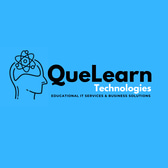Academic Content Digitalisation
Unlocking the Future of Education: Digitalizing Academic Content for Enhanced Learning, Seamless Access, and Operational Efficiency
The Role of Academic Content Digitalization in Achieving Operational Excellence in Educational Institutes
In today's fast-evolving educational landscape, academic content digitalization has become a cornerstone for operational excellence in educational institutes. By transitioning from traditional paper-based resources to digital formats, institutions can significantly enhance their efficiency, accessibility, and overall performance.
1. Streamlined Access and Distribution:
Digitalized academic content allows for easy access and seamless distribution across multiple platforms, making it readily available to students, faculty, and administrators. This not only reduces the time and effort spent on manual distribution but also ensures that the most current and accurate materials are always at hand.
2. Cost Efficiency:
Digital content eliminates the need for physical printing, storage, and distribution, significantly cutting down operational costs. Additionally, it offers the flexibility to update and distribute new content at a fraction of the cost compared to traditional methods.
3. Improved Collaboration and Engagement:
With digital content, collaboration between educators and students becomes more interactive. Tools such as multimedia presentations, online discussions, and real-time updates foster an environment of continuous engagement, enhancing the learning experience and academic performance.
4. Enhanced Data Analytics and Insights:
Digital platforms enable the collection of valuable data on how content is consumed and interacted with. This data can then be analyzed to understand student needs, identify learning gaps, and optimize teaching methods, ultimately driving personalized learning.
5. Increased Flexibility and Accessibility:
Digital content is accessible anytime, anywhere, providing students with the flexibility to learn at their own pace. This accessibility supports diverse learning styles and needs, ensuring that education is inclusive and scalable.
6. Scalability and Future-Readiness:
As educational institutes grow, the need for scalable solutions becomes paramount. Digital content allows institutions to expand their resources effortlessly, ensuring that they can accommodate larger student populations without compromising quality or efficiency.
In summary, academic content digitalization is pivotal in ensuring operational excellence within educational institutes. It empowers institutions to streamline processes, reduce costs, enhance learning experiences, and future-proof their operations in an increasingly digital world.
